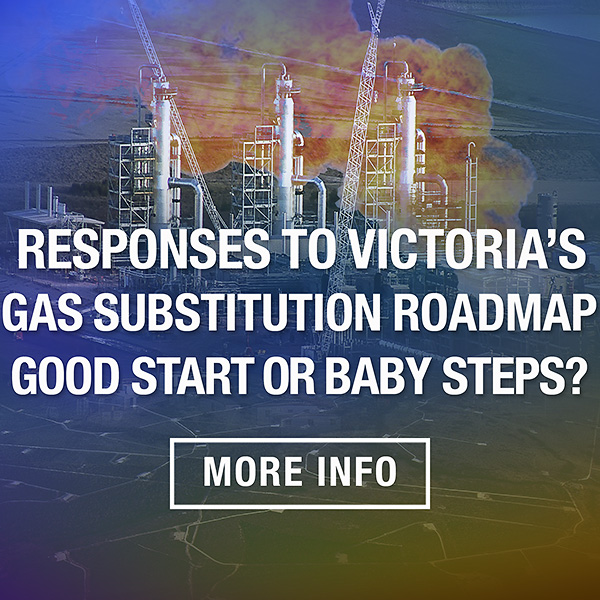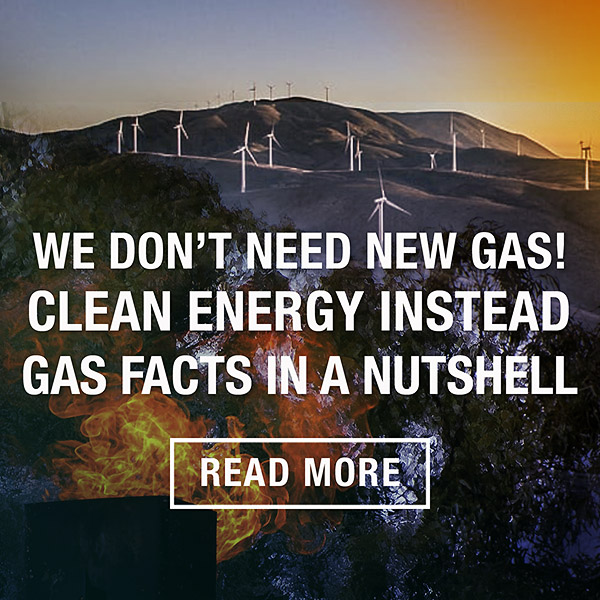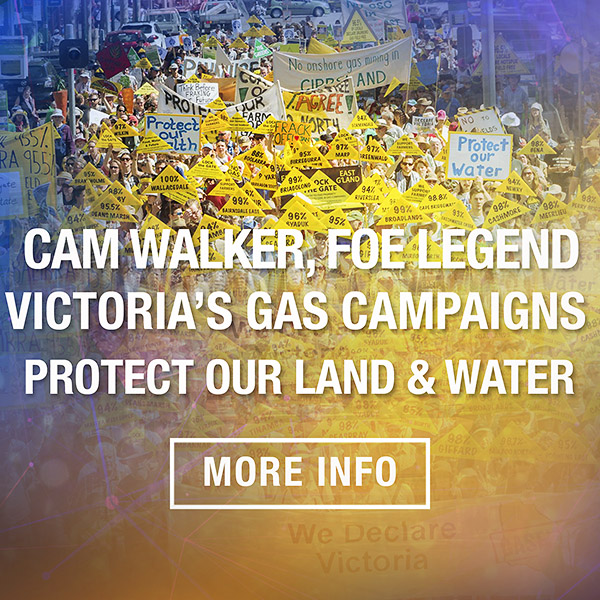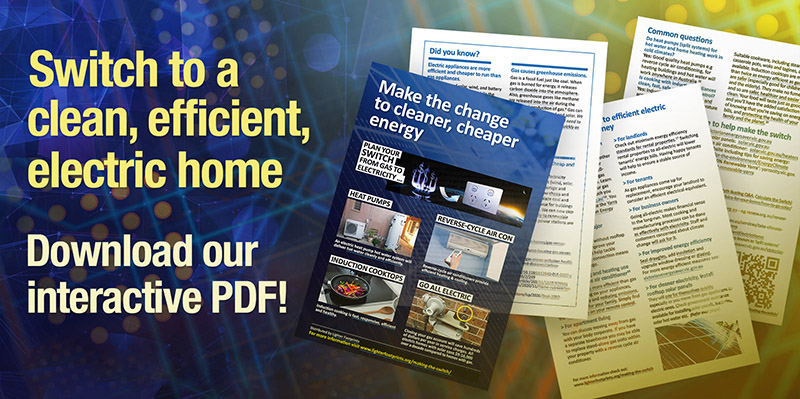
It’s time for Victoria to kick our gas habit!
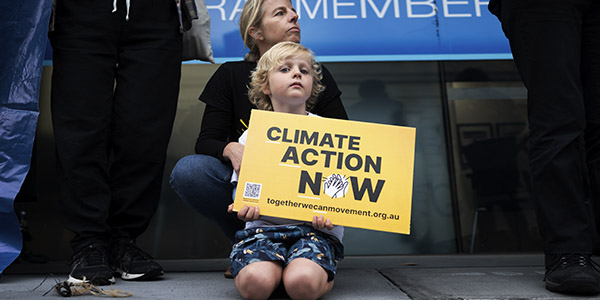
To meet Victoria's climate targets we need to move past gas
Electrification will help protect our health and our climate
- Science-based climate targets are at least 75% reduction by 2030
- ‘Natural’ (household) gas is a fossil fuel that releases greenhouse gas emissions.
- Gas (mostly methane) creates a huge fraction (17%) of Victoria’s emissions. 70% of gas used in Victoria is for space heating and hot water.
- Switching to efficient electric appliances for heating will lower the cost of energy bills for business and households.
Making the switch to clean electricity is a worthwhile contribution to a safer planet and a more sustainable future.

Electric homes are cleaner, safer and save on energy bills
- Electric heat pumps for hot water and reverse cycle air conditioners are very efficient. Heat humps have 400-500% efficiencies compared to 80% with gas appliances.
- A fully electric home saves over $1000/yr on energy bills or double that with solar panels according to the State Government of Victoria.
- Replacing your gas hot water system with an electric heat pump, has lower running costs, reduces your energy bills and leads to significant savings in household emissions.
- Reverse cycle air conditioning for heating (and cooling) is safer than ducted gas heating, improves air quality and saves hundreds of dollars per year in running costs.
- A fully electric housholding including PV and and EV will save around $5000 per year before 2030 – more at Rewiring Australia
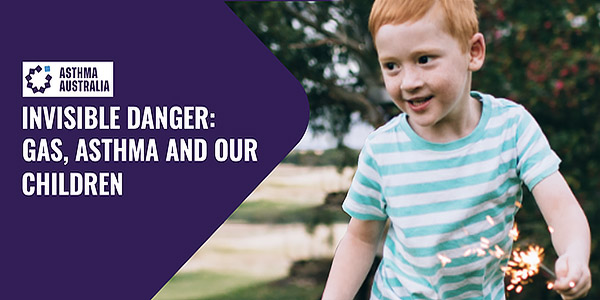
Gas cooking increases the incidence of childhood asthma by 12% and harms our health
Household gas increases indoor pollutants
- Household gas harms our health, including our respiratory and neurological systems.
- A University of Queensland study found that gas cooking causes 12% of childhood asthma.
- Asthma Australia is informing parents about the risks of gas cooking.
- Kids living in households with gas cooktops have a comparable risk of asthma to a child living with household cigarette smoke.
More about household gas health impacts
Household gas, particularly gas cooking, harms our health, particularly children
- “Cooking with gas releases chemicals such as nitrogen dioxide and formaldehyde, which causes inflammation in the airways and exacerbates asthma.” – University of Queensland study
- Gas cooking has also been linked to cardiovascular impacts through long-term low level CO exposures. The EPA states that long-term NO2 exposure is associated with “cardiovascular effects, diabetes, poorer birth outcomes, premature mortality, and cancer.”
- The Rocky Mountain Institute found that elevated NO2 levels from gas cooking are associated with cardiac and respiratory health impacts including asthma, and learning difficulties, and the effects of gas cooking impacted children more.
- An epidemiological meta-analysis found that “children living in a home with gas cooking have a 42% increased risk of having current asthma, a 24% increased risk of lifetime asthma”.
Victoria has started the process of moving away from gas
Victoria has already announced that from January 2024 all new homes that require a planning permit must be all-electric and not connected to the gas network.
A recent update to the Victorian Gas Substitution Roadmap expands the VEU, Victoria’s energy upgrades program, improving the range of heat pumps for space heating and hot water and offering discounts when swapping from gas to electric cooktops from July 2024, Secondary dwellings must also be all-electric.
However:
- There is no time table for “an orderly and equitable retirement of Victoria’s leaky and polluting gas transmission network.”
- Victoria has not ruled out “dirty hydrogen made with methane gas.”
- Victoria supports new gas drilling including close to the Twelve Apostles ecotourist area
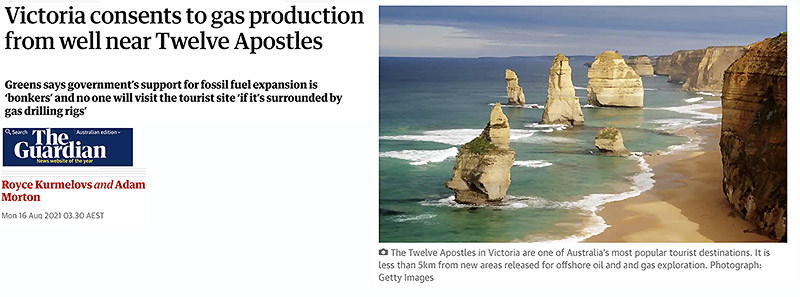
If we moved households and industry to cleaner, cheaper and safer electricity, there would be no gas shortage
What about Victoria’s “gas shortfall”?
Reducing demand is an untapped and cost effective way to eradicate the upcoming gas supply gap, while reducing cost of living pressure, according to a new report from IEEFA. Modelling included electrifying household gas appliances at end of life, banning the sale of new gas appliances, transiting to heat pumps for medium temperature light industrial applications. In Victoria, these electrifications and other energy efficiency interventions would achieve 30%, 52% and 93% reductions in gas demand by 2027, 2030, and 2045 compared with 2022.
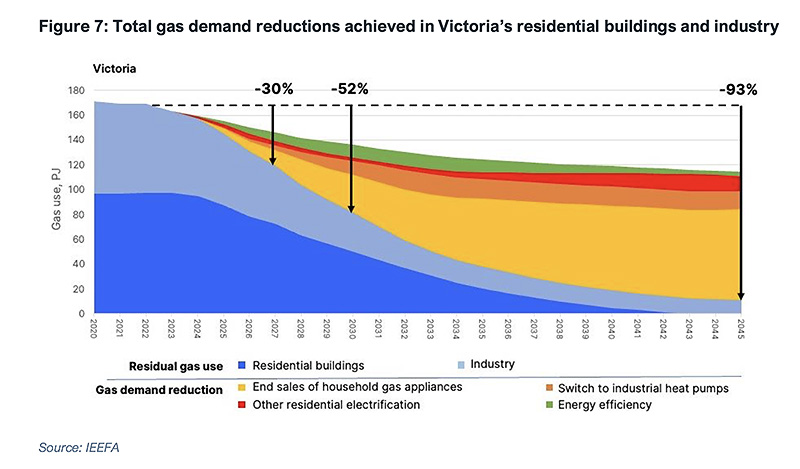
Gas substitution and fuel switching would practically eliminate any shortfall according to the Northmore Gordon Report.- discussion here, download here.
Victoria must accelerate the transition away from fossil gas and commit to no new gas infrastructure
Find out more about why moving away from gas is so important!
Check our gas facts in a nutshell blog here:
- Natural gas is a fossil fuel (methane)
- Methane leakage rates can make gas as bad as coal
- Methane contributes 25% of global heating
- New gas will not produce more manufacturing jobs
- New gas is not needed and will not lower prices
- Gas is not a transition fuel, we can move straight to renewables and storage
- Gas cooking is responsible for 12% of childhood athsma
- There are safer and cleaner alternatives domestic heating, cooking and in industry
- Green hydrogen is on its way – zero emissions with a wide range of industrial uses and export potential, and will help decarbonise difficult sectors like steel.
Fossil gas damages our health and our climate
- People know burning coal damages our climate, but the impact of ‘natural gas’ is less well known
- Burning gas is bad for our health right now.
- The government plans for massive gas expansion could supercharge our climate crisis, further threatening a safe, clean sustainable future.
We have good affordable alternatives right now
We have the solutions, they just need to be scaled and implemented
The gas industry has poor medium and long term prospects
- Gas is no longer seen as a transition fuel
- More gas will not lower prices or bring many new jobs
- Gas exports may well “fall off a cliff” in the decades after 2025
- Building new gas infrastructure will accelerate Australia’s emissions and waste public funds
Five reasons why gas is already becoming superseded from our blog on gas impacts and campaigning:
Where should Australia be headed?
We have the technology to move away from coal – it’s renewables and storage with improved grids
We have the technology to move away from gas – it’s electrification (heat pumps) and development of green hydrogen
We have the technology to move away from oil – it’s a move to electric vehicles and green hydrogen for heavy transport
Renewables will increase our energy self sufficiency and help us avoid carbon tariffs as the world pivots away from fossil fuels
Australia can be a renewable energy superpower – exporting electrons, green hydrogen and clean manufactured goods
Lighter Footprints is supporting ongoing Victorian and national gas campaigns
You can read more here!
Want to learn more about clean, efficient electric homes?
Save your time on research.
Download our brochure with handy links to buyer’s guides, articles and case studies here.
Check out our Making the Switch information page here.
Sign up to our newsletter
to receive news and updates about effective local climate action

